Best Medical Alerts of 2024
Picking a device that could potentially save your life is an important decision. Our guide breaks down which medical alert device you should buy and why.
Our Picks
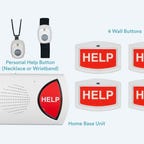
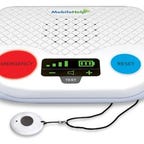
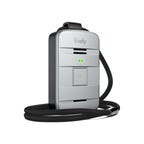
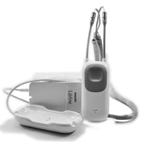
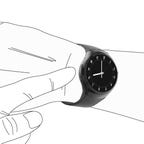
Calling 911 is the best response after a fall or injury, but it's not always possible to reach the phone after an accident. For people over the age of 65, falls are the leading cause of injury and injury death. That's why it's important to be prepared and consider getting yourself or your older loved ones a medical alert. While most people have smartphones these days, it may be prudent to play it safe and get a medical alert device.
Medical alerts are devices that allow you to call for emergency help using a button that's always on your person, such as on a wristband or pendant. They're useful for people who are especially vulnerable to falls or other medical emergencies. Not only do they offer caregivers and loved ones some much-needed peace of mind, they can save lives.
Medical alert systems have come a long way since that iconic Lifecall commercial in the 1980s ("I've fallen, and I can't get up!"). While all medical alert systems used to depend on landlines to work, many now use cellular data, offering more flexibility and accessibility. Modern medical alerts also offer additional features for those who want them, such as medication reminders, fall detection, location tracking and fitness tracking.
With so many options out there, it's more complicated than ever to find the best medical alert option for you or your loved one's individual needs based on medical conditions, budget and other factors. Using buyer reviews and expert guidance, we've curated this list of the best medical alerts for a range of needs.
Home-based medical alerts are ideal for those who don't leave the house often. They can't be used on the go (like at the grocery store), since they have to stay connected to an in-home base unit. They work in the yard or even a few houses down, as long as you find one with good range -- like this medical alert from Bay Alarm Medical.
Bay Alarm Medical's in-home medical alert can be used either with a landline or cellular service. Choose between pendant or wristband help buttons, both waterproof with a reported range of 800 to 1,000 feet from the base station. It also comes with four help buttons to put on the wall.
This is a monitored system, which means the help button has 24/7 access to emergency operators who can dispatch local authorities and/or call loved ones if needed. All monitored systems require a monthly fee, and Bay Alarm's price is very reasonable compared to other companies, with no additional startup fees. Users report quick response times and high-quality service from Bay Alarm's operators. You can also add on fall detection -- a feature that can automatically detect a fall and send an emergency alert on the wearer's behalf.
While this medical alert doesn't come with extra features, like medicine reminders or fitness tracking, its affordability, reliability and ease of use make it our top pick for an in-home alert.
An in-home medical alert with perks: Starting at $19.95 per month, $0 equipment fee, $0 activation fee
MobileHelp Classic
If you do want some more features with your in-home medical alert system, MobileHelp Classic is a solid choice. It comes with a suite of useful tools for users and caregivers alike through its app, MobileHelp Connect, including the ability to see recent locations or send a location request. You can add on medication reminder services at an additional $5 per month, plus activity tracking for another $5 per month. Fall detection is also available at $10 per month.
MobileHelp's system doesn't have a landline option -- it only works over a cellular network (in this case, AT&T's). The waterproof help button comes in lanyard or wristband form, with a reported range of 1,400 feet from the base unit. The base unit has a backup battery with up to 30 hours of power, which is helpful in case of a power outage. MobileHelp offers 24/7 US-based monitoring, with quick response times and a courteous, professional response team, according to customer reviews.
If you opt in for all the extras, you're looking at a monthly cost of around $55 -- but MobileHelp offers a range of ways to cut that price down, including discounts, frequent promos and the ability to choose from monthly, quarterly, semiannual or annual payment plans.
Best on-the-go medical alert: Starting at $25 per month, $50 equipment fee, $35 activation fee
Lively Mobile Plus
Unlike in-home medical alerts, mobile systems don't require a base unit, which means that you can use them anywhere -- at the store, on the road, or anywhere else there's cell service. They're ideal for active older or disabled people who leave the house often.
This on-the-go medical alert from Lively offers the best combination of features and affordability that we could find, making it our top recommendation for a mobile system. Instead of a pendant or wristband, it consists of a small help button that can be clipped to practically anything, including your belt, purse or lanyard.
One potential drawback to mobile alerts is battery life -- like all portable electronics, they have to be recharged regularly to work. The Lively Mobile Plus has a generous 80 hours of battery life, so you don't have to worry about plugging it in every single night. Another benefit: GPS tracking is included with the Mobile Plus for no extra cost.
One feature that sets the Mobile Plus apart is the option to get 24/7 access, not only to an emergency call center but also to urgent care, allowing you to talk to a doctor or nurse anytime. With that feature included, you're still looking at only $30 per month, or $40 per month if you want fall detection, as well. (AARP members get a discount on Lively products.)
Best location tracking: $50 per month, $100 device fee
Philips Lifeline GoSafe 2
If location tracking is a priority for you, one medical alert system stands out above the rest: the Philips Lifeline GoSafe 2. It uses five locating technologies for tracking, including GPS, Wi-Fi and audio beaconing, which allows for a more accurate reading and offers several back-up options in case one technology isn't working.
The GoSafe 2 is a little pricey -- it costs $50 per month, and device activation is extra, although there's a discount for AARP members. That price gets you access to a 24/7 emergency operations center based in Canada, plus free fall detection. In this case, you only have the option for a help button pendant (no wristband is available), which has a rechargeable battery that lasts up to two or three days, although some users say it's a bit bulky to wear.
The GoSafe 2 doesn't come with access to medical professionals, or extra perks like activity tracking. Philips is a trusted brand with a long history in the medical alert industry, and with its quick response times and advanced location tracking, this is still a great medical alert for the right person.
Best medical alert smartwatch: $30 per month, $179 for equipment
Bay Alarm SOS
Tech-savvy users might think you can simply use any smartwatch as a medical alert. After all, you're always wearing it anyway, and you can use it to make emergency calls. A dedicated medical alert smartwatch is different -- it allows you to simply press an SOS button and get quick access to a 24/7 emergency dispatch center or call your caregivers.
Some medical alert smartwatches require a smartphone, but the Bay Alarm SOS Smartwatch is functional all on its own. It has two-way calling, so if you press the help button, you can talk directly to the dispatcher through the smartwatch (and you can also talk to your loved ones). It also features location tracking and a built-in step tracker. The battery life ranges from six to 18 hours, depending on usage, and the device is water resistant with a rating of IP67. Note that it does not come with fall detection, as Bay Alarm says that technology is "simply not accurate enough" for its wrist devices.
In addition to the monthly fee, the SOS Smartwatch costs $179 to own the device outright.
Best smart home medical alert: $35 per month, $160 startup fee
WellBe Medical Alert Plus
If you want a high-tech medical alert with all the features you can think of, consider the WellBe Medical Alert Plus. You can think of this as a smart home medical alert -- like Alexa and a medical alert all in one. It consists of a smartwatch and a smart speaker, both of which are connected to 4G to allow you to speak with a 24/7 emergency response center anytime.
The smartwatch features fitness tracking, blood pressure monitoring, step tracking and other data, and the speaker allows you to play music, watch the news or control other smart home devices. Both devices can also offer reminders about medications, prescription refills, appointments and more. It all happens through a voice-activated virtual health assistant called WellBe. (You can also buy the smartwatch and smart speaker separately if you don't need both.)
There are a ton of features available with WellBe, which means that it's incredibly versatile and can replace multiple devices in your home -- but it's likely not the most intuitive system if it's for someone less tech-savvy. For those who are comfortable with smart technology, this medical alert is a great value for the price.
Best all-in-one medical alert: Starting at $40 per month, $250 for equipment
Aloe Care Health
Aloe Care Health claims to have "the world's most advanced medical alert system." That's a pretty bold claim, but its system is definitely a more innovative version of the traditional medical alert, while still remaining accessible and easy to use. The Smart Hub allows you to access a 24/7 call center through voice activation, and it automatically monitors the air quality, motion and room temperature.
Like other home-based systems, Aloe Care has a base unit and a wearable help button, and it uses 4G cellular coverage only (no landlines). Unlike other brands, you don't have to switch to another device if you want on-the-go coverage as well. You can just opt for the Essentials Plus or Total Care packages, which come with a mobile device that can go anywhere, yet is still compatible with your regular home unit. (That mobile device also comes with free fall detection.)
Aloe Care's caregiver app is one of the best around, according to reviewers. It allows your loved ones to check in directly with you and collaborate on your care. Add in other small, but important perks -- like a free lockbox for your home valuables, and the ability to amplify sound for the hearing impaired -- and this is a great all-in-one medical alert for those that can afford it.
Best unmonitored medical alert: No monthly fees
LogicMark FreedomAlert
In general, medical alerts with no monthly fees aren't the best way to go. They're unmonitored, so they don't have access to around-the-clock emergency response centers, and there aren't many options or features available. That said, some folks may prefer them -- especially those with in-home caregivers or nearby help, or those who can't afford a monthly fee. Unmonitored medical alerts either sound an alarm out loud or connect directly to 911 or to caregivers.
We like the LogicMark FreedomAlert because it offers the most customizable options -- you can program it to call up to four contacts and 911. It comes with a waterproof help button pendant that has a 600-foot range from the base unit and features two-way calling so that you can talk directly into it. Caregivers can also forward your calls to 911 if they like. LogicMark also offers a more affordable model, the Guardian Alert 911, which can only call 911. Like most unmonitored medical alerts, both of these models require a landline.
A smartwatch with medical alert features: Starting at $399
Apple Watch Series 7
The Apple Watch is technically a regular smartwatch, not a medical alert device. With new features like fall detection, it's starting to blur the line between the two. The watch automatically pings you if it detects a fall, then contacts emergency services and alerts designated contacts if it doesn't detect any movement within 60 seconds. You can also call 911 with your Apple Watch by using Siri or holding down the side button until the Emergency SOS slider appears. Its battery life is similar to Bay Alarm's SOS Smartwatch, at around 18 hours.
The Apple Watch doesn't come with live emergency monitoring, nor does it have the caregiver features that come with a traditional medical alert. Also, if you want to use the watch to send messages and make calls even when your iPhone is out of reach, you'll have to pay extra for monthly cellular service (using the same provider as your phone). You can expect to pay about $10 extra per month, depending on your provider.
If you don't need 24/7 emergency support and have other good reasons to use an Apple Watch, like its robust health and activity-tracking capabilities, then this may be a viable option.

